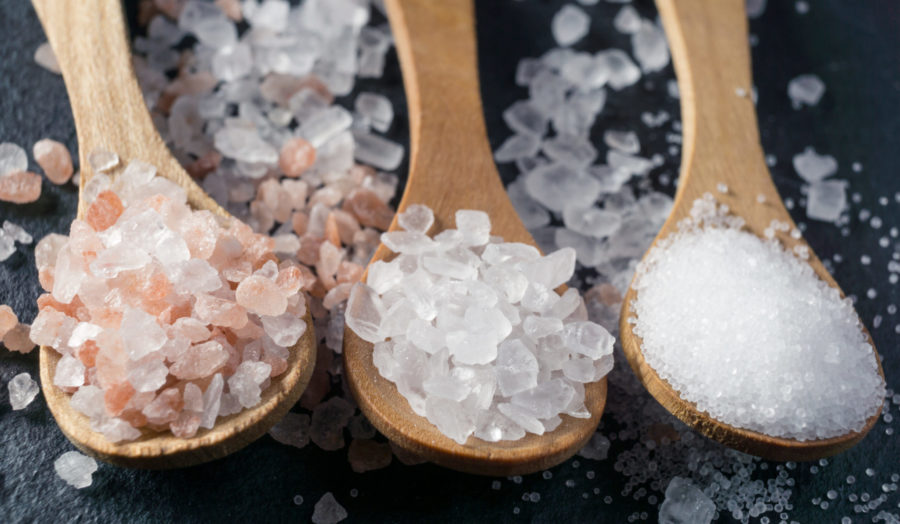Health/Wellness, Heart Health, Patient Blog | Apr 8 2022
Salt shake up: Which type of salt is best for you?

Salt used to be just that… salt. Nothing fancy. In fact, quite boring. It was something that really hadn’t changed for centuries. Now, however, as you stroll down the aisles of your local grocery store, there are many options to consider. How do you decide which type of salt is the best or the healthiest? Dietitians On Demand has the essential guide that just might shake up your salt of choice.
But first, a quick lesson on salt.
The classic table salt that you are likely most familiar with is made up of sodium and chloride, two particles that are chemically bonded together. They form salt crystals, which is what you sprinkle on your French fries. In the wake of widespread iodine deficiencies, iodized salt was introduced in the United States in the 1920’s.
Table salt
- Defining features: Standard, classic choice. It has anti-caking additives, so it won’t clump together on humid or rainy days.
- Pros: Inexpensive. Contains iodine.
- Cons: Generally, it has the highest sodium content of all the different types of salt.
Sea salt
- Defining features: Coarse texture. Plus, it comes from the ocean!
- Pros: Naturally contains iodine.
- Cons: May contain impurities, including trace amounts of heavy metals or microplastics.
Kosher salt
- Defining features: Coarse, flaky texture. Otherwise, it is very similar to table salt.
- Pros: Useful for some types of cooking methods.
- Cons: Not usually iodized.
Himalayan salt
- Defining features: It’s pink, which comes from iron oxide (the same compound found in rust).
- Pros: None, really.
- Cons: Not usually iodized.
Salt substitutes
- Defining features: Much lower in sodium, but the sodium is generally replaced with potassium.
- Pros: Low in sodium, so may be appropriate for individuals who need to limit sodium.
- Cons: Expensive. High potassium intake may not be safe or recommended for all. Check with your physician before switching to a high-potassium salt substitute.
Which salt is best?
At the end of the day, salt is salt. Other than the salt substitutes perhaps, there is no scientific evidence to suggest that any type of salt is better or healthier than any other. Your choice will depend on your budget, taste preferences, and health needs.
Keep in mind that iodine is somewhat elusive in most people’s diets (unless you are eating seafood regularly). So, choosing an iodized salt is a wise choice. Because sodium is abundant in the average American diet, the best option is to swap your salt shaker for spices, herbs, and other seasonings. You’ll not only reap the health benefits of a reduced-sodium diet, but you’ll enjoy a more unique flavor profile with your meals!
If you have more questions about sodium, it’s always a great idea to speak with a registered dietitian. Registered dietitians are the only credentialed experts qualified to address your unique health questions.
References
Leung AM, Braverman LE, Pearce EN. History of U.S. iodine fortification and supplementation. Nutrients. 2012;4(11):1740-46.
Gunnars K. Types of salt: Himalayan vs Kosher vs regular vs sea salt. Healthline website. https://www.healthline.com/nutrition/different-types-of-salt. Updated October 19, 2018. Accessed December 4, 2018.
Drake SL, Drake MA. Comparison of salty taste and time intensity of sea and land salts from around the world. Journal of Sensory Studies. 2011;26:25-34.
Who we are
Dietitians On Demand is the nationwide leader in providing dietitians with jobs they love. If flexibility, competitive pay, a full benefits package, free CPEUs each month and a team dedicated to dietitians sound good to you, apply to our positions today.




